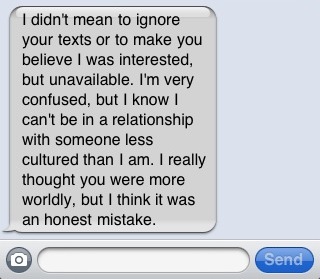In 2002, BBC’s Horizon television show actually conducted experiments in homeopathy, aiming for James Randi’s Million-Dollar Challenge. (The episode is available in 5 parts on YouTube—the video above is part 1; Horizon’s attempt is reported in Part 5.) The Challenge was first introduced in 1964 when James Randi offered $1,000 of his own money to the first person who could offer proof of the paranormal. Donors stepped forward to sweeten the pot, and Randi maintains a public log of attempts to win the prize. I hope I’m not spoiling the Horizon episode when I report that no one has won.
Don’t have time for the BBC Horizon episode? Here’s the homeopathy sequence from Richard Dawkins’s 2007 documentary, Enemies of Reason (less than 10 minutes):
That’s popular science, on television. Have there been more recent high-visibility examinations of homeopathy in the UK? Oh yes. This year, the UK House of Commons Science and Technology Committee published its Fourth Report, Evidence Check 2: Homeopathy. Its conclusion:
We conclude that the principle of like-cures-like is theoretically weak. It fails to provide a credible physiological mode of action for homeopathic products. We note that this is the settled view of medical science.
In our view, the systematic reviews and meta-analyses conclusively demonstrate that homeopathic products perform no better than placebos.
We regret that advocates of homeopathy, including in their submissions to our inquiry, choose to rely on, and promulgate, selective approaches to the treatment of the evidence base as this risks confusing or misleading the public, the media and policy-makers.
We accept that NICE [UK’s department for evaluating treatments and recommending or rejecting them for coverage by the national health service] has a large queue of drugs to evaluate and that it may have greater priorities than evaluating homeopathy. However, we cannot understand why the lack of an evidence base for homeopathy might prevent NICE evaluating it but not prevent the NHS spending money on it. This position is not logical.
For patient choice to be real choice, patients must be adequately informed to understand the implications of treatments. For homeopathy this would certainly require an explanation that homeopathy is a placebo. When this is not done, patient choice is meaningless. When it is done, the effectiveness of the placebo—that is, homeopathy—may be diminished. We argue that the provision of homeopathy on the NHS, in effect, diminishes, not increases, informed patient choice.
We conclude that placebos should not be routinely prescribed on the NHS. The funding of homeopathic hospitals—hospitals that specialise in the administration of placebos—should not continue, and NHS doctors should not refer patients to homeopaths.
People often say they like their homeopathic provider because that provider takes time and listens to them. The placebo effect can, after all, be very noticeable, even genuinely helpful. It’s an area that deserves better understanding—in part because techniques that leverage the placebo effect could easily be combined with science-based treatment in a way that improves care without misleading patients:

